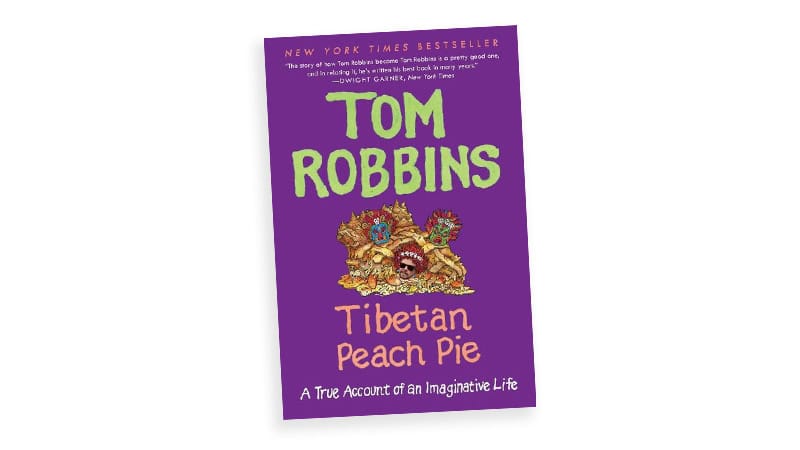The Great Lie
Richmond writer David L. Robbins' column from the June-July 2015 issue.
An old flame of mine once told me something she’d picked up in yoga class. “Learn to reject that which does not serve you.”
At the time I didn’t think too much on this. It appeared a glib way of seeing the world. I thought it lacked nuance, but it seemed to suit her, and I liked her.
But I’m a muller, if that’s a word. I mull.
A MANTRA FOR THIS CENTURY
Slowly like rust or rot, like age, this sentiment proved to be something I couldn’t shake. What at first I believed was a castoff glimpse into Oriental philosophies took root in my heart. It troubled me a long time; I turned it over so much it began to smell like my own hands, until at last I dropped it, slightly terrified of it. Turns out this wasn’t a glib statement at all.
Reject that which does not serve you is looking more and more like the mantra for our 21st century.
We see this all around us; our America is especially shot through with it. But like something said in conversation with a pleasing partner, we peer only across the surface of it because it, too, is pleasing to the senses, the wallet. Limit the world to just what serves us, admit only those things, events and people that bring us utility, value, pleasure, peace. What’s so bad about that?
Reject tumult and struggle if they will not win for you a prize. Discard any experience that requires more than it will yield. Refuse labor if it does not compensate.
I EARNED IT, I KEEP IT!
In my fundraising efforts on behalf of a nonprofit, I encounter STEM. Science Technology Engineering Math. I’ve asked some technology companies to help our arts and writing organization benefiting public middle and high school youths and their teachers. They refuse support because the arts do not serve them. They’re tech companies desiring tech-savvy citizens as employees and customers. The poems and stories of Richmond’s kids do not serve them.
We witness it increasingly in our national politics. Republicans aren’t served by agreeing with Obama, so they reject every initiative despite the good agreement might do. Democrats vilify Republicans, tone-deaf to compromise for the common good.
And what of the common good? Do we even hear the phrase any more? The notion seems the echo of some bygone era. The WWII generation. Rome.
Gated communities in the suburbs rob the city of tax base, abandoning public schools, giving the wheel of poverty another spin. Tax increases are fought like the Alamo under the battle cry: I earned it, I keep it! Do you know anyone wealthy who waits for their own salary to trickle down? All can make fine arguments why their choices are ethical and necessary.
Please don’t think that I don’t know many charitable, good affluent people. I do. One friend drove around the block to return to a homeless fellow in order to give him a windbreaker. I work with selfless folks on my charitable board, and I’m aware of dozens more on other boards. I teach some of VCU’s finest youngsters and find no shortage of mentors, volunteers and open hearts.
OPPORTUNITY OFTEN DOESN’T KNOCK
But what saddens me, scares me, is the American Dream. The great lie that Anyone can make it Here, the claim that Opportunity awaits every willing hand. The lie that touts how a kid from a below-poverty household in a forgotten public school should compete with his opposite from the county.
Too often the American Dream is the banner waved by those who reject that which does not serve them, when they say I got mine; what’s stopping you from getting yours?
It’s a pretty lie, too. At least it has been in my life. I’ve lived with it, embraced it, even loved it. But I can’t anymore. I don’t even know why I can’t, except to quote a lesson from a dear old friend, a man once among the wealthiest of men, who told me from what he feared was a death bed: “It felt far better giving it away than it ever did making it.”
In conclusion may I quote my favorite radical? Jesus. “Let the greatest among you be servants.”
David L Robbins is a best-selling author whose 13th novel, The Devil’s Horn, will be published in October. His new play, Sam & Carol, was produced by Henley Street/Richmond Shakespeare at Richmond’s Gottwald Theater in April. The Sandston native is the co-founder of the James River Writers and co-founder of The Podium Foundation.org.

